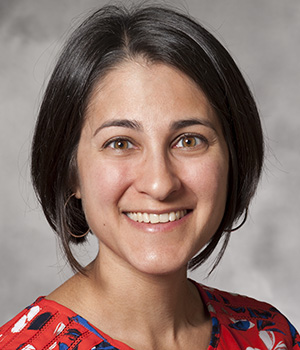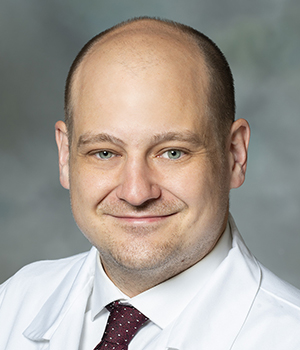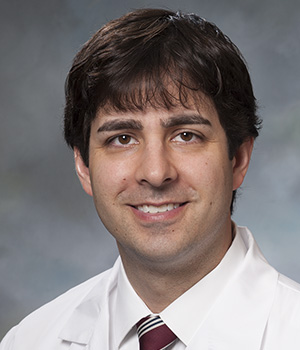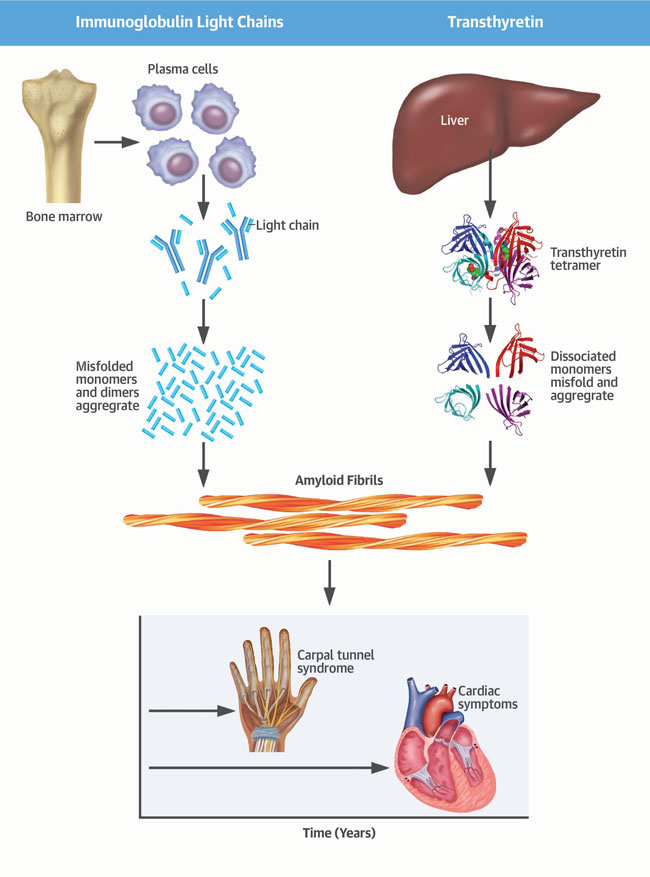Amyloidosis
The Saint Luke’s Amyloid Program, comprised of a multidisciplinary team of physicians, is dedicated to diagnosing and treating patients with all forms of amyloidosis.
This comprehensive team includes cardiology, hematology, nephrology, and neurology physicians. Members of the team have extensively published research and been involved in clinical trials, and are committed to treatment of amyloidosis in their patients.
Condition
Amyloidosis is a disorder that occurs when a protein in the body misfolds and deposits into organs, leading to their dysfunction. Amyloidosis can affect several organ systems including the heart, kidneys, skin, soft tissue structures, and gastrointestinal tract.
Mechanism of Amyloid Deposition Illustration
Cardiac amyloidosis is a disease in which the heart thickens and stiffens, which leads to heart failure and sometimes restrictive cardiomyopathy. Signs of heart failure could include shortness of breath, swelling, excess fluid in the lungs, cough, fatigue, and loss of appetite.
Causes
There are predominantly two types of amyloidosis that affect the heart, though other rarer types exist. One type comes from abnormalities with the transthyretin protein, which is made in the liver. The other comes from immunoglobulin light chains, which are made in the bone marrow.
Transthyretin amyloidosis (ATTR) predominantly leads to heart failure and/or neuropathy. This is an increasingly recognized cause of heart failure with preserved ejection fraction or diastolic heart failure. Older men are most commonly affected, but ATTR can affect patients of any age, race, or gender. Some patients may have a form of ATTR that leads to severe neuropathy with symptoms of numbness, tingling, or pain in the hands and/or feet and weakness. This condition may be genetic, in which case it is commonly called familial amyloid cardiomyopathy (FAC) or familial amyloid polyneuropathy (FAP). Non genetic disease is called wild-type or senile ATTR.
Immunoglobulin light chain amyloidosis (AL) can lead to multi-organ involvement including the heart, kidneys, skin, soft tissue structures, and gastrointestinal tract. Light chains are fragments of immunoglobulins (antibodies) that are made in the bone marrow, and normally work to fight infection as part of the immune system. AL amyloidosis can affect patients at any age, and about 20 percent of patients with AL will also have multiple myeloma.
Symptoms
Specific signs and symptoms depend upon which organs are involved. Patients may not experience signs or symptoms of amyloidosis until the condition is advanced.
Signs and symptoms of amyloidosis may include:
- Shortness of breath
- Swelling in the legs and ankles
- Difficulty lying flat
- Carpal tunnel syndrome in one or both wrists
- Spinal stenosis or biceps tendon rupture
- Abnormal kidney function
- Frothy urine
- Numbness or tingling in the hands or feet
- Fatigue
- Unintentional weight loss
- Tongue enlargement
- Abdominal pain and diarrhea
- Purple discoloration around the eyes
Diagnosis
Saint Luke’s Hospital offers a variety of diagnostic tests that can lead to a amyloidosis diagnosis.
Among these tests:
- Specialized blood and urine tests
- Markers of heart, kidney, and liver dysfunction
- Advanced echocardiography with longitudinal strain analysis
- Cardiac magnetic resonance imaging (MRI)
- Technetium pyrophosphate nuclear scintigraphy
- Biopsy of the bone marrow, heart, kidneys, or soft tissue in of the abdomen
Treatment
Treatment options depend on your amyloidosis diagnosis:
AL amyloidosis
- Anti-plasma cell therapy (a type of chemotherapy)
- Bone marrow transplantation
- Clinical trials
ATTR amyloidosis
- Patisiran (Onpattro)
- Inotersen (Tegsedi)
- Tafamidis
- Clinical trials
Resources
Contact Us
Request an appointment by emailing amyloid@saintlukeskc.org
Providers

Furha Iram Cossor, MD

Nathan K McGraw, MD




